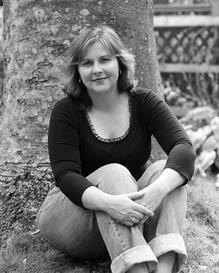
Sherri Lynn Colby-Bottel
Specialties
Cultural traditions in urban spaces, contemporary music practices, heritage tourism, authenticity and sincerity, race and nationalism, urban and civic identities; North America, US Gulf South, New Orleans.
My dissertation examines the local management of traditional jazz music in post-Katrina New Orleans. “Traditional jazz” is generally understood to be the early form of jazz developed and played in New Orleans at the turn of the 20th century. Locals often explain traditional jazz as they explain their city: The culmination of centuries of blended peoples and cultures making New Orleans, and its music, unique. While “cultural mixture” is credited in the development of New Orleans traditional jazz, that same music is now a century-long tradition—replete with expectations of historical authenticity and requirements of sincere musical engagement that must be upheld if the tradition is to be maintained. And the stakes are high. The jazz iconography is a central element of New Orleans’ tourism economy. It is also emblematic of a city where not so long ago, locals faced a disaster that sparked the fear of losing it all, the fear of New Orleans becoming an inauthentic, corporatized, caricature of itself.
Of course, the quest for authenticity as a real “cultural essence” is never successful. Authenticity is always receding, always subject to context, position, and in-the-moment interpretations. When talking to musicians about “authentic New Orleans traditional jazz,” there is never full agreement about what this means. However, I propose that when authenticity becomes a defining feature of a social-organizational structure such as a corporate workplace or a tourism industry, enactment of the “authentic tradition” becomes subject to management and control. Yet, as local people see it, to fix and manage “authentic New Orleanian-ness” is to reify or corporatize it, and this can lead to its destruction. In response, I found that New Orleans musicians and music boosters alike use expectations about intent as “sincerity in practice” to mediate conflicts between managed authenticity and the more spontaneous, individuated enactment of the authentic jazz tradition they valued. At the close, I argue that this music discourse is metonymic of a broader, cohesive local aesthetic: That the social process found in New Orleans traditional jazz music—in which intent mediates problems in execution—can be understood as one transposition of what it means to be an authentic New Orleanian writ large.
In my analysis, I draw on current theoretical trends in anthropological studies of authenticity and sincerity, and tourism and tradition, as a foundation for my exposition of socially produced authenticity. I show how recent ethnomusicological studies contribute to anthropological knowledge by approaching the making and consumption of music as a thoroughly social process, rather than simply a reflection of those processes. I also draw on my 20 years of professional experience as a performer of traditional jazz. My grounding in the West Coast style of traditional jazz has positioned me as both insider and outsider to the New Orleans traditional jazz community. With this diverse set of professional and academic skills, I have documented the local management of traditional jazz in the five years following Katrina and aim to make contributions to ethnographies of recovery, as well as the developing field of the anthropology of music.
Presentations:
- Nov 2010: “Civic Associations, Popular Art, and Local Democracies in New Orleans Traditional Jazz Music-Making,” American Anthropological Association Annual Meetings, New Orleans, LA
- Nov 2010: “Salvaging and Refashioning Music Traditions in Post-Katrina New Orleans,” Society for Ethnomusicology and Musicology Annual Meetings, Los Angeles, CA
- Jun 2010: “Sincerity, Authenticity, and Rebuilding New Orleans Traditional Jazz,” Gulf Coast Returning to Katrina Research Summit, University of Southern Mississippi, Gulfport, MS
- Apr 2010: “Resilience, Busking, and Making Traditional Jazz in New Orleans Streets,” International Association for the Study of Popular Music, New Orleans, LA
- Nov 2006: “New Orleans Roots Music Communities and the Rebuilding of Tradition,” American Anthropological Association Annual Meeting, Philadelphia, PA
- Mar 2006: “Networking Post-Disaster Virtual Media and Maintaining Community Networks,” Co-authored with Roberto Armengol (University of Virginia), American Cultures Conference, Williamsburg, VA
Guest Lectures:
- Nov 2010: “Anthropology of Music Part Two: Research Findings,” Arizona Classic Jazz Preservation Society, Phoenix, AZ
- May 2010: “Tourism, Authenticity, and New Orleans Traditional Jazz,” Drexel University Graduate Center, Sacramento, CA
- Nov 2009: “Anthropology of Music Part One: Researching the Music I Grew Up Making,” Arizona Classic Jazz Preservation Society, Phoenix, AZ